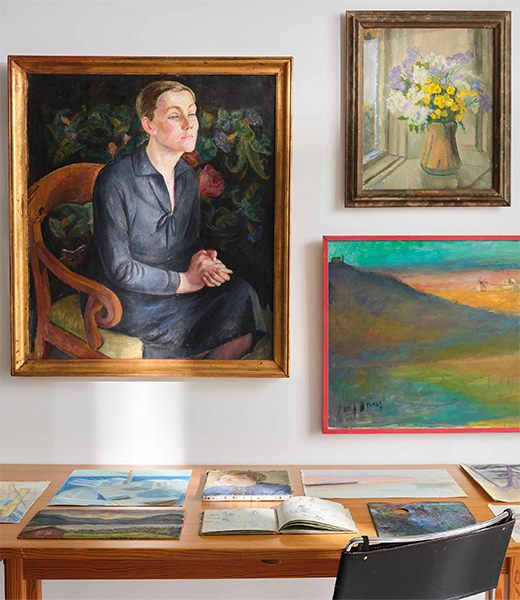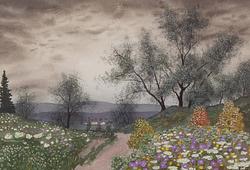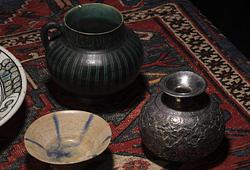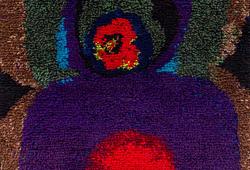Maj Bring
Maj Bring is one of the artists who studied under the most influential masters of modernism – both in Sweden and internationally. In Sweden, she took lessons from Carl Wilhelmson at Valand in Gothenburg, whose influence and teachings were particularly significant at the beginning of the 20th century. Wilhelmson also executed a well-known portrait of Maj Bring, which is part of the National Museum's collections but is deposited at the Aguéli Museum.
In the fall of 1908, she arrived in Paris and had the opportunity to apprentice in Lucien Simon's studio during the day, while in the evenings, she sketched figures at the Académie Colarossi. In the spring of 1910, she saw Gertrude Stein's art collection and encountered the works of Cézanne, Matisse, and Picasso for the first time, leaving a lasting impression on the young artist. That same spring, she enrolled in Matisse's school and became part of the Swedish artists' circle alongside Sigrid Hjertén. In the book "Motsols" (1986), she described Paris’s eventful and challenging life.
In 1914, Maj Bring returned to Sweden but returned to Paris in the early 1920s for further studies under André Lhote. What's fascinating about Maj Bring is that she never ceased in her artistic journey, continuously seeking new expressions. Her depictions of Stockholm's motifs might be Maj's most beloved. They portray the alleyways of Gamla Stan and her beloved Södermalm with vistas from Fjällgatan.
In the 1950s, she traveled with the Swedish Orient Line and was deeply moved by, among other things, the everyday life and landscapes of North Africa, which she transformed into paintings brimming with color and light upon her return. Some paintings depicting motifs from this journey are available in the current themed auction.



























